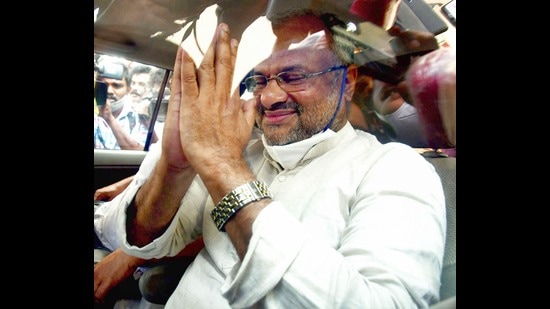Woman’s version is inconsistent and exaggerated: Kerala Court in acquittal order
Acquitting the bishop, Gopakumar G, judge of the additional district and sessions court I, Kottayam, said in his order that the victim’s claim that she was raped on 13 occasions cannot be relied upon based on her sole testimony.
A court in Kerala on Friday acquitted Roman Catholic bishop Franco Mulakkal on charges of repeatedly raping a run in a convent, saying the victim’s statement was “inconsistent” and police failed to provide evidence to back her claim.

In the copy of the order made available on Saturday, the court made scathing remarks on victim’s intentions, saying she was swayed under the “influence” of others and had once “accepted to drop the matter” if her convent was placed under the diocese of Bihar.
Mulakkal, 57, was accused of raping the nun multiple times during his visit to a convent in Kottayam district between 2014 and 2016, when he was bishop of the Jalandhar diocese of the Roman Catholic church. The complainant is a member of the Missionaries of Jesus, a congregation under the Jalandhar diocese.
Acquitting the bishop, Gopakumar G, judge of the additional district and sessions court I, Kottayam, said in his order that the victim’s claim that she was raped on 13 occasions cannot be relied upon based on her sole testimony.
The court compared the victim’s statement with that of the witnesses and said there was no consistency in her statements as she gave different versions of the rape incidents. The court also doubted her statement saying that she has photographs and had exchanged emails with the bishop a day after the incidents.
“She had travelled long distance with the accused in his car and had attended many functions on almost all days, next to the days of the alleged forceful sexual violence,” the court pointed out, adding that the witness who had travelled with the victim and the accused during some of those occasions had no hint about the sexual violence to which she was subjected to on the previous nights.
The grievance projected by her to her companion sisters was that the accused was taking retaliatory steps for not yielding to his sexual desires, the court said, whereas her version before the court was that she was forced into sexual intercourse on 13 occasions.
“Prosecution has failed to give proper explanation for the inconsistent version,” the court said. “In view of the inconsistent version of the victim, this court is of the view that she cannot be categorised as a sterling witness.”
Apart from the victim’s testimony, “there is no corroborative evidence to prove the prosecution case,” the court said.
“The police could not seize the mobile phone used by the victim which would have provided some input into the alleged vulgar messages sent by the accused,” it said. “The explanation offered for the non-production of the phone is thoroughly dissatisfactory.” It said the laptop also was not subjected to scientific analysis, as it was claimed that the hard disk was damaged.
Although the hymen of the victim was found torn in her medical examination, it did not confirm rape, the judge said in his verdict. “Even if it is assumed that the complaint was a false complaint, from the mere fact that the victim’s hymen was found torn, penile penetration or forceful sexual intercourse cannot be inferred,” the court said in 289 page judgement.
In its remarks on the trial, the judge said it was a case in which the grain and chaff were inextricably mixed up.
“It is impossible to separate the grain from the chaff. There are exaggerations and embellishments in the version of the victim. She has also made every attempt to hide certain facts,” the court said.
It was evident that the victim was swayed by others who had vested interests in the matter, the judge said.
“The in-fight and rivalry and group fights of the nuns, and the desire for power, position and control over the congregation is evident from the demand placed by PW1 (victim) and her supporting nuns who were ready to settle the matter if their demands for a separate region under the diocese of Bihar is accepted by the church,” it said.
“In the said circumstances, this court is unable to place reliance on the solitary testimony of PW1 (victim) and to hold the accused guilty of the offences charged against him,” the court said in its order acquitting Mulakkal of the offences under various sections of the Indian Penal Code.
Many women activists, artists and legal experts criticised the verdict. some started an online campaign called Avalkoppam (with her) to vent their anger and outrage. Many of them asked the state government to move the High Court immediately.
The verdict was a clear case of “miscarriage of justice,” said B Kemal Pasha, former justice of the Kerala high court. Questioning some of the findings in the verdict, the retired judge said that the Supreme Court has clearly stated that a person accused of rape can be convicted on the testimony of the victim, if she is found to be credible and trustworthy.
“And delay in reporting such a case cannot be the reason for the acquittal,” justice Pasha said. “Reason for delay is well explained, going by the social background of the case.”
Lawyer and human rights activist Joemon Puthanpurakkal, who fought for justice in the murder case of Sister Abhaya case for 28 years, said the court seems to have agreed with the defence. “It is a disappointing verdict for all suffering women,” he said.
(With agency inputs)






